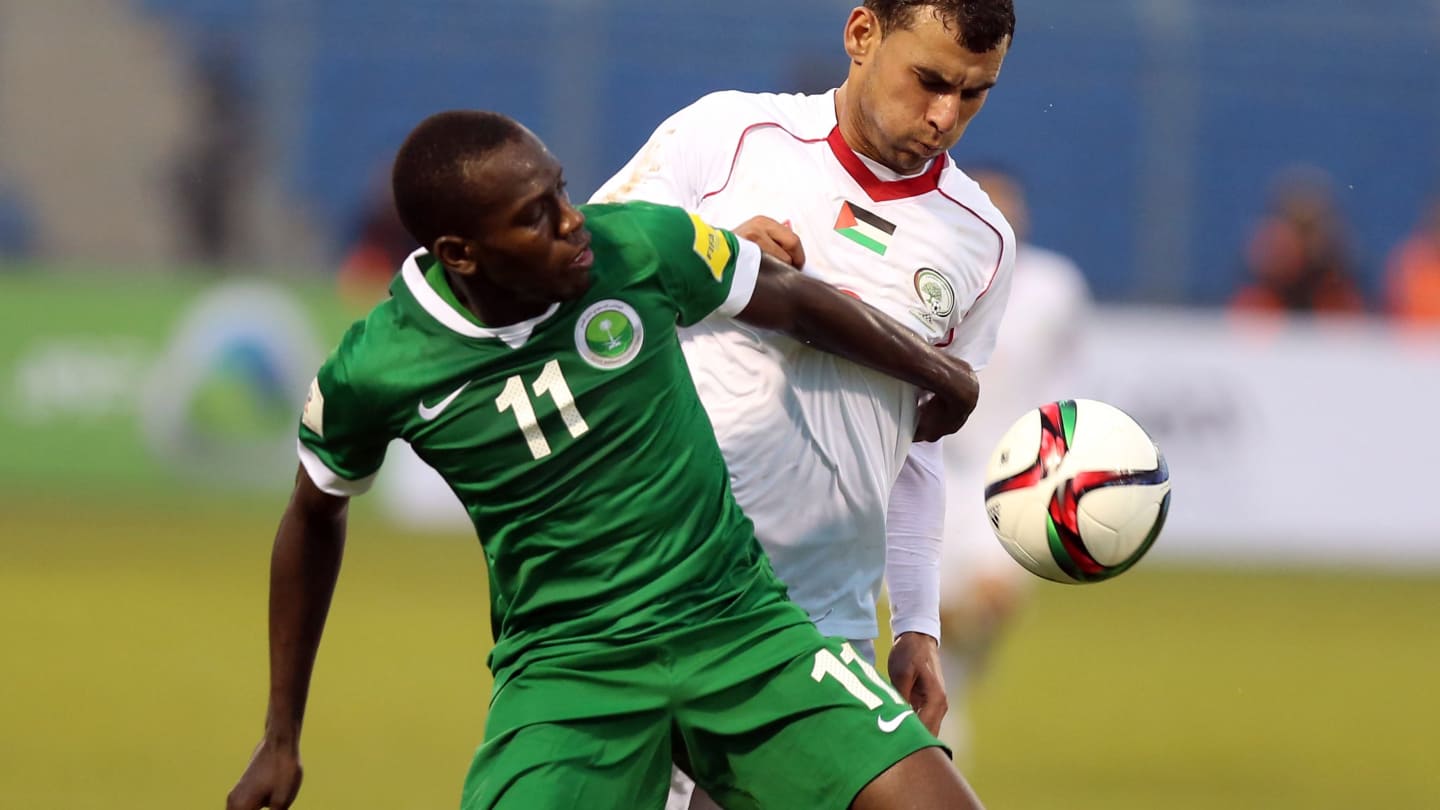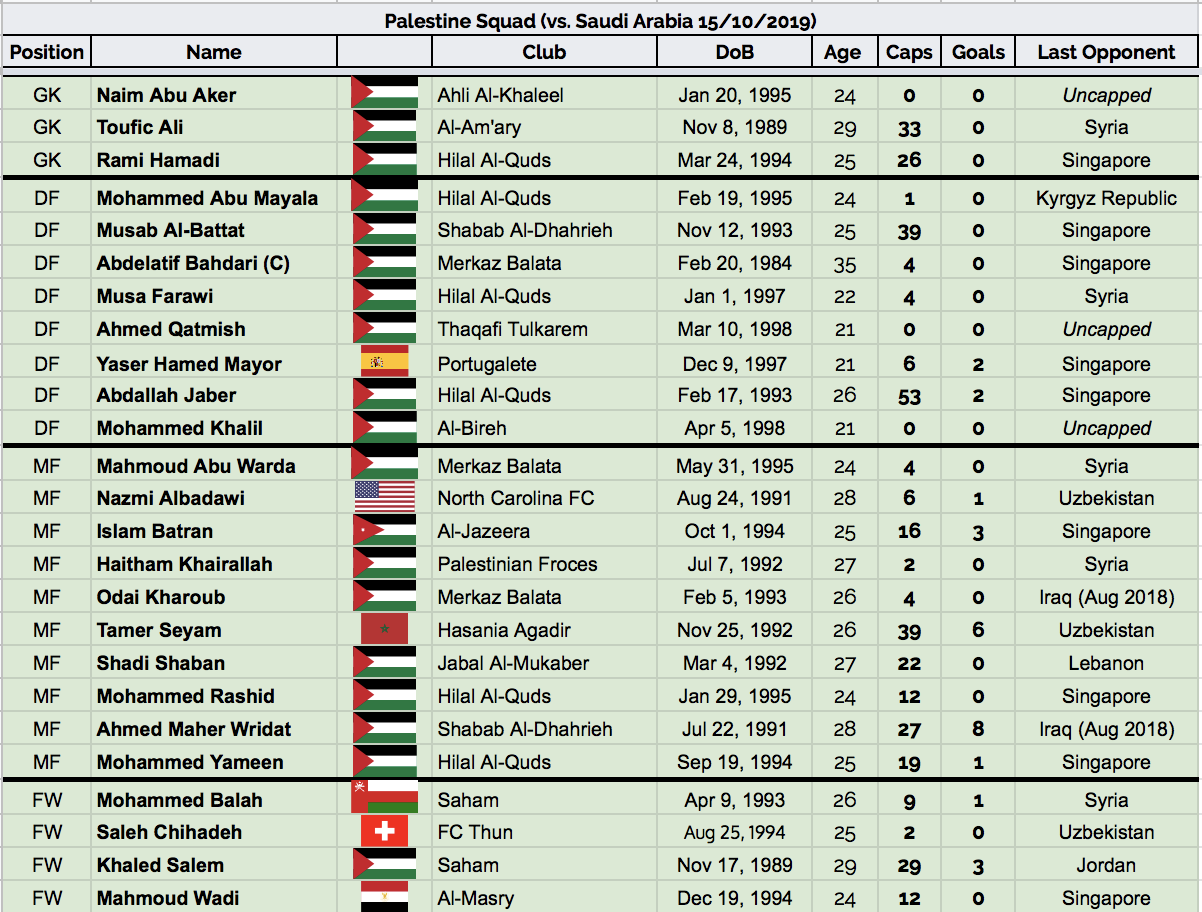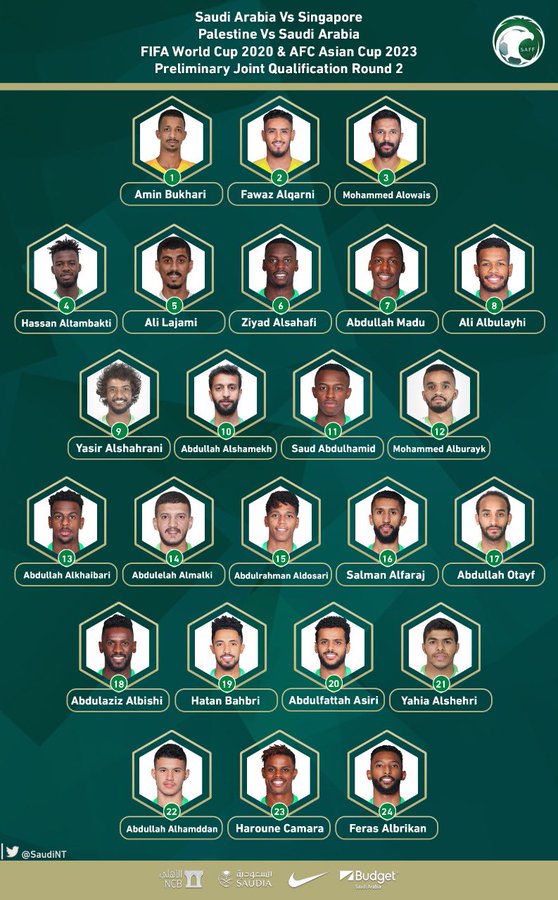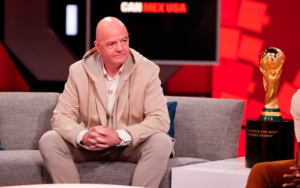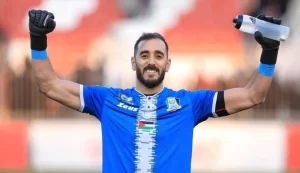What: 2022 FIFA World Cup/2023 AFC Asian Cup Qualifying
When: Tuesday October 15th, 2019
Where: Faisal Al-Husseini Stadium, Al-Ram, Jerusalem, Palestine
Kickoff: 16:00 Jerusalem
Streams/TV: Streamed live on our site
Previous Encounters
05.11.2015 // Palestine 0:0 Saudi Arabia (2018 WCQ)
11.06.2015 // Saudi Arabia 3:2 Palestine (2018 WCQ)
11.08.2014 // Saudi Arabia 2:0 Palestine (Friendly)
28.06.2012 // Saudi Arabia 2:2 Palestine (2012 Arab Cup)
03.12.2005 // Palestine 0:2 Saudi Arabia (2005 West Asian Games)
Absences pile up
Two untimely injuries to Mahmoud Wadi and Oday Dabbagh will mean a radically different look for Al-Fida’i in attack. Two years ago, neither player had been capped at senior level but their meteoric rise has seen them become integral members of the national team and the most high profile foreign imports in the Egyptian and Kuwaiti leagues.
Perhaps more worrying for Palestine is the continued absence of attacking players who could provide options and quality depth. Ahmad Awad is enjoying the form of his life having racked up 10 goals in his last nine games. Other players based in Sweden who have not been called up include Mahmoud Eid and goalkeeper Amr Kaddoura, who has conceded the fewest goals in the Swedish third tier.
There is also no place in the squad for Yashir Islame- the striker who has averaged a goal every other start in his time with the national team.
Despite being diagnosed with a pulled quadricep, Mahmoud Wadi’s name has been kept in the list of players that was released by the PFA on Tuesday evening.
Palestine will also be without midfield lynchpin Mohammed Darweesh who is suspended after picking up two yellow cards in the first two qualifiers.
The 25-man squad is as follows:
Despite slip up, Palestine still in driver’s seat
After two match days it is abundantly clear that Group D is far and away the Group of Death. No team was able to avoid dropping points and the current standings have the lowest ranked side at the top of the group.
Landing that punch against Uzbekistan, ostensibly the toughest team in the group was huge for Palestine’s chances. Losing to Singapore can be considered a missed opportunity but not a death blow by any means.
The fantastic football-rankings.info site simulated the chances in August and September and Palestine have seen an increase in the possibility of finishing in the top two positions in the group.
Before a ball was kicked, Palestine was given a less than 20% chance of qualifying for the next round. That number has jumped to 33%
Within the group there is now a better chance Palestine finishes in the top two positions (55%, up from 30%) and they are now the team the simulation favours to finish as runners-up in the group.
|
1st Place |
2nd Place |
3rd Place |
4th Place |
5th Place |
| August |
9.43% |
20.32% |
46.45% |
17.67% |
6.13% |
| September |
23.18% |
32.07% |
26.29% |
12.37% |
6.09% |
Four Years on, Palestine have their home game
For many observers, the previous World Cup qualifying campaign was sabotaged by the ongoing saga of the Palestine vs Saudi Arabia fixtures. The fact that Saudi never came to Palestine and did everything in their power to avoid the trip left a bitter taste in the mouths of the PFA, players, coaching staff, and fans.
The fact that Palestine had hastily agreed to swap home and away dates in order help Saudi Arabia “clear up administrative issues” only added insult to injury.
Now Palestine has a chance to exact revenge and to further boost their chances at advancing to the Third Round of qualifying. The fans- who should be out in larger numbers than they were last month- and the pitch should present serious challenges to Renard’s men.
Change the only constant in Saudi camp
Many conversations about Asian football center on the gulf of experience, resource, and ability between the 46 member nations. For a long time the gap between Palestine and Saudi Arabia was massive- the Green Falcons had won three Asian Cups and played in five continental finals as well as two editions of the World Cup before Palestine had even played their first World Cup qualifier against Hong Kong on March 4th, 2001.
The gap between Palestine and Saudi Arabia still exists- The Saudis have a better league, better infrastructure, and the type of budget that can lure the best coaches and administrators. At senior national team level however the gap has been consigned to the historical record. Consider that if Palestine two most capped active players- Abdelatif Bahdari (70 caps) and Abdallah Jaber (53 caps) were included in Saudi Arabia’s squad they would also be Saudi Arabia’s two most capped players.
Over the last two editions, Palestine has played six games at Asian Cup finals. Saudi Arabia has played seven- managing to get past the group stage but quickly bowing out to eventual finalists Japan. There is, of course, the small matter of the 2018 FIFA World Cup but many who played at that tournament are no longer with the squad. In fact, there are only eight holdovers from that squad. Third choice goalkeeper Mohammed Al-Owais in addition to Yasir Al-Shahrani, Mohammed Al-Breik, Abdullah Alkhaibari, Abdullah Otayf, Yahya Al-Shehri, and Salman Al-Faraj.
Two years of constant change since Van Marwijk stepped away have done a number on this squad. Mohammed Al-Sahlawi went from zero to hero to zero again. Fahad Al-Muwalad failed in a race to regain full fitness. Former captain Osama Al-Hawsawi has retired as has Tayseer Jassim. Newly appointed captain Omar Hawsawi was so bad against Yemen he was dropped from the squad and then promptly announced his international retirement. Abdullah Al-Mayouf continued the tradition of calamity in the Saudi net by not making a single save against lowly Yemen and has been dropped as well.
Saudi Arabia is not only the midst of a generational shift but a stylistic one as well. Herve Renard is the polar opposite philosophically from his predecessor Juan Antonio Pizzi. The Chilean finally had his team playing good football but the lack of a striker who could finish off meticulous build up proved to be his downfall.
Ironically, an inability to finish gilt edged chances played a big role in Renard’s Morocco exiting early from the 2018 World Cup and the 2019 African Cup of Nations.
Unlike his previous two national team stints with Côte d’Ivoire and the aforementioned Atlas Lions, Renard does not have a surfeit of slick midfield operators to execute his plans. With Saudi clubs able to employ eight foreigners- many of those responsibilities fall to a marquee foreign signing.
There is not much time for Herve Renard to better communicate his vision to his players who are very much learning on the go. This might have been fine had Saudi Arabia been given an easier slate of opponents- instead they were grouped with the highest ranked side in Pots 2 and 3 in addition to Yemen and Singapore who have proven themselves to be the best sides in their respective pots.
To make matters worse was the nature of the performance against Yemen that prompted many fans to ask why the better funded, more experienced Saudis failed to match their Yemeni counterparts’ intensity. It is almost remarkable that they conspired to concede two goals whilst enjoying 80% possession and limiting the opposition to a merger 155 completed passes.
There will be pressure on Renard to prevent another shock result in a week where Saudi Arabia will face the first and second place teams in Group D.
Ould Ali’s reactive approach
In a very ironic twist the presence of Saudi Arabia and Uzbekistan in the group might just play into the hands of Palestine. Despite a surfeit of attacking talent, Palestine continues to play a very defensive 4-2-3-1. Al-Fida’i are comfortable without the ball and playing the spoiler is something the team relishes. In the first match against Uzbekistan, the team faced very little trouble in neutralising the conservative approach of Uzbekistan and took the chances that fell to them to produce a historic result. There will be no surprises as to how Palestine play or how they line up. In all likelihood, Shadi Shaban will take Mohammed Darweesh’s spot in midfield. Islam Batran will start in place of Oday Dabbagh and Saleh Chihadeh will get his first start in place of the banged up Mahmoud Wadi.
The same formula will be deployed against Saudi Arabia. If Palestine avoid making a killer mistake like they did against Singapore (thankfully, Renard’s sides do not press high up the pitch), deny the Saudis space, and put the pressure on them to find a path to goal on an artificial pitch in a hostile stadium.
The onus is on Renard, who will need to get a tune out of a side that has looked very poor thus far. More importantly, the Frenchman needs a better performance from his defence. There is experience on the flanks in the shape of Al-Breik and Al-Shahrani but the latter was badly beaten for Yemen’s second goal. He needs a dependable goalkeeper in between the sticks, and neither he nor his two predecessors could unearth one.
There are more questions than answers for Saudi Arabia right now and even though Ould Ali has his shortcomings he does have a settled and committed side; one that will no doubt be boosted by the momentous nature of the occasion.
